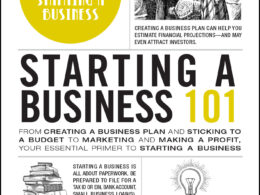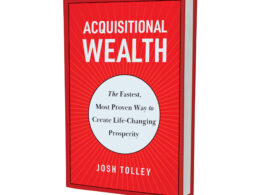The following is an excerpt from “Culture Is the Way: How Leaders at Every Level Build an Organization for Speed, Impact, and Excellence” by Matt Mayberry. Published by Wiley. Copyright © 2023.
Overall, culture wields enormous power. It is the deciding factor that not only can create an incredibly dynamic, innovative workplace but also drive extraordinary levels of execution in the marketplace. Culture is the way forward if we are to embrace this expanded set of possibilities and build an outstanding organization that serves a purpose greater than just profit. And one more thing. When I say culture, I don’t mean company perks like unlimited vacation time or sleep pods on every floor of the company’s headquarters or some cute phrase that leaders throw around every now and then in the hopes of making employees or shareholders happy. In the following chapters, we will define culture in depth and examine how it can help an organization succeed.
When it comes to culture, one of the most glaring issues is that far too many leaders do not recognize it as one of their greatest competitive advantages. And for the leaders who do see it as a competitive advantage, their daily actions often contradict this. Culture should not be an afterthought that is left to the HR department or a separate project that will be taken care of when business slows down.
The best leaders not only see culture as a major organizational imperative but also put culture at the forefront of everything they do. “I came to see, in my time at IBM, that culture isn’t just one aspect of the game; it is the game,” former IBM CEO Lou Gerstner said.
Your strategy can be stolen and copied by the competition. They can try to mimic your sales process and clone the vast majority of your company’s daily operations. The culture you create is something that no one, including your competitors, can take away or imitate.
Yes, culture is powerful, and it absolutely has an impact on business performance, particularly when management is focused on integrating all their culture work into every aspect of their business. A Harvard University study found that companies with a strong and healthy culture experienced a 756% increase in net income compared to those with a weaker culture.6 I don’t know about you, but even if that number is slightly inflated, it still represents a staggering level of growth in the type of business impact that developing a winning culture can have on an organization.
Garry Ridge, Chairman and CEO of WD-40 Company, told me that building culture is a sacred responsibility that has paid off handsomely in terms of business performance. The company’s sales have quadrupled over the past two decades. Furthermore, their market cap increased from $250 million to nearly $2.5 billion. WD-40 Company’s annual compounded growth rate of total shareholder return has been 15% over the last two decades. According to Garry, the company’s “tribal culture” is their secret sauce and unquestionably their greatest advantage. What accounts for WD-40 Company’s exceptional employee engagement survey results and astounding market performance? Garry stated that everything boils down to the Four Pillars of the Fearless Tribe. The four pillars are: care, candor, accountability, and responsibility.
What about the business repercussions of ignoring culture and having a toxic workplace environment? SHRM published some startling data and research on the costly consequences of toxic cultures in 2019. Over a five-year period, organizations lost $223 billion due to employee turnover caused by a poor workplace culture; 49% of employees were contemplating leaving their current jobs due to a negative workplace culture. In the past five years, one-fifth of employees left their positions due to company culture. And these figures were released in 2019. I’d wager that these figures have gotten worse over time. Culture has extraordinary power, but it can be quite costly if not taken seriously.
As a keynote speaker, executive coach, and management consultant, I’ve had the privilege of traveling the world for the past decade, working with game-changing business leaders and some of the world’s most prestigious organizations. In my work as a consultant and advisor, I have the unique opportunity to witness cultural and organizational transformations that even those on the inside of an organization once thought were impossible to achieve. I’ve seen firsthand what can happen when an organization and its leaders begin to ruthlessly build and passionately prioritize culture.






